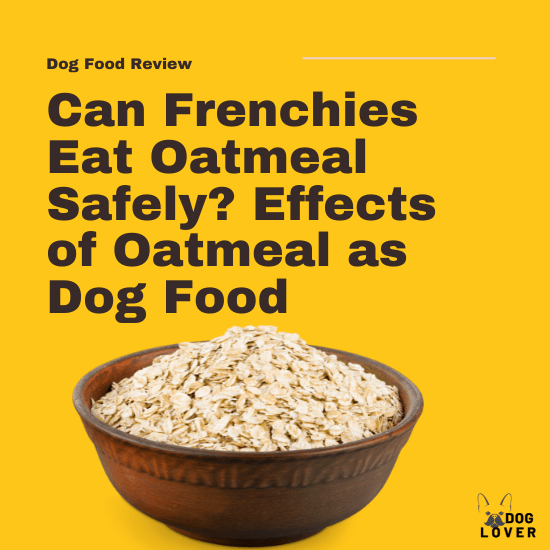Can dogs eat applesauce?
Many dog owners wonder if they can treat their furry friends to a little applesauce now and then.
While it’s always important to choose safe treats for dogs, applesauce can be a healthy addition to your dog’s diet when served correctly.
This blog post explores the benefits and risks of applesauce for dogs, as well as how to safely incorporate it into their meals.
Is applesauce safe for dogs?
Yes, dogs can eat applesauce! However, not all applesauce is created equal. The type you give your dog makes a significant difference in whether it’s beneficial or harmful.
Unsweetened applesauce, particularly organic or homemade versions, is a great choice. This is because it is free from added sugars, artificial flavorings, and potentially harmful chemicals.
Let’s dive deeper into the reasons why applesauce can be good for your dog and the precautions you should take.
Health Benefits of Applesauce for Dogs
Rich in Nutrients
Applesauce contains several beneficial nutrients that can support your dog’s overall health. It is a good source of vitamins A and C, which are essential for maintaining a healthy immune system, cognitive function, and skin health. Vitamin C also helps boost your dog’s ability to ward off infections, while vitamin A supports healthy skin and coat.
High in Fiber
The fiber content in applesauce promotes digestive health. Fiber is crucial for regulating your dog’s bowel movements and preventing constipation. It can also help maintain a healthy weight by promoting feelings of fullness, which can curb excessive eating.
Antioxidants for Protection
Applesauce is rich in antioxidants that help combat free radicals. These unstable molecules can contribute to aging and illness, so antioxidants play a key role in protecting your dog’s cells and reducing the risk of chronic diseases like heart disease and cancer.
Low in Fat and Calories
Applesauce, especially the unsweetened kind, is low in fat and calories. This makes it a good option for overweight dogs or those on a calorie-controlled diet. It provides a tasty treat without the added worry of excessive weight gain.
Good for Dogs with Kidney Issues
Because applesauce is low in sodium, it is safe for dogs with kidney problems, where a reduced intake of sodium is often recommended. In addition, the lack of added sugar means that dogs with diabetes can safely consume applesauce in moderation.
Supports Healthy Teeth and Bones
Applesauce contains calcium and phosphorus, which are essential for strong bones and teeth. This can be especially beneficial for senior dogs or those at risk of bone issues like arthritis.
Types of Applesauce for Dogs
When choosing applesauce for your dog, it’s crucial to consider the ingredients.
Some store-bought applesauce varieties contain added sugars, artificial sweeteners like xylitol, and preservatives, which can be harmful to dogs.
Let’s look at the different types of applesauce and whether they are safe for your dog:
Unsweetened Applesauce
Unsweetened applesauce is the safest option for your dog. It doesn’t contain any added sugars, which makes it a healthier choice.
It can be given in small amounts as a treat or added to your dog’s food to improve flavor and nutritional value.
Always check the label to ensure it does not contain artificial sweeteners like xylitol, which is toxic to dogs.
Cinnamon Applesauce
Cinnamon applesauce can also be safe for dogs, but again, it must be free from added sugar and other harmful ingredients.
Cinnamon itself has several health benefits for dogs, such as improving digestion and regulating blood sugar levels. It can even promote brain function and heart health.
However, you should always make sure that the applesauce is homemade or purchased from a reliable source with no harmful additives.
Organic Applesauce
Organic applesauce is another excellent choice for your dog, as it is made without pesticides or synthetic chemicals.
Organic applesauce is nutrient-rich, providing fiber, antioxidants, and vitamins that support overall health. It’s best to choose organic applesauce made with simple, natural ingredients—just apples and maybe a bit of cinnamon.
Sweetened Applesauce
Sweetened applesauce is not suitable for dogs. It often contains added sugars, which can lead to obesity, diabetes, and dental issues in dogs.
Additionally, sweetened applesauce may also include high-fructose corn syrup, which is harmful to dogs.
Always avoid sweetened applesauce, as the sugar content can be detrimental to your dog’s health.
Strawberry Applesauce
While strawberries are safe for dogs, strawberry applesauce may contain sugar or artificial sweeteners that could pose a risk.
If you want to offer your dog strawberry applesauce, it’s best to make it at home so you can control the ingredients.
Strawberry applesauce can be a tasty treat and is high in vitamin C, which is beneficial for your dog’s immune system and overall health.
How much applesauce can I give my dog?
While applesauce offers a variety of health benefits, it’s important to feed it to your dog in moderation.
Too much applesauce can cause digestive upset, especially because of its fiber content. Here’s a general guideline for how much applesauce to serve based on your dog’s size:
- Large dogs: 1 – 2 teaspoons per day
- Small dogs: ½ – 1 teaspoon per day
These amounts are more than enough to provide a nutritious treat without overloading your dog’s digestive system.
Keep in mind that applesauce should only make up about 5% of your dog’s diet, and it should be considered an occasional treat rather than a regular part of their meals.
What Are the Risks of Applesauce for Dogs?
While applesauce can offer many health benefits, there are a few risks to consider. The main concerns are:
- Excessive Sugar or Artificial Sweeteners: As mentioned earlier, sweetened applesauce can be dangerous due to added sugar and ingredients like xylitol, which is toxic to dogs. Always choose unsweetened or homemade applesauce to avoid this risk.
- Gastrointestinal Upset: Feeding your dog too much applesauce can lead to diarrhea, stomach cramps, or bloating due to its high fiber content. Make sure to offer it in small, controlled amounts to avoid digestive issues.
- Choking Hazard: Some commercial applesauce brands may contain apple skin, which can be difficult for dogs to digest. Make sure the applesauce you provide is smooth and free from any hard pieces.
Recipes for Homemade Applesauce Dog Treats
If you want to make applesauce a regular part of your dog’s diet, you can easily incorporate it into homemade dog treats. Here are a few recipes to try:
Peanut Butter Applesauce Dog Treats
- 1 ½ cups creamy peanut butter
- 1 ½ cups old-fashioned oats
- 1 ¼ cups unsweetened applesauce
- 3 cups whole wheat flour
- 1 teaspoon baking powder
Mix the ingredients, roll out the dough, and cut into shapes. Bake at 350°F for 20-25 minutes, or until golden brown.
Applesauce Dog Biscuits
- 3 cups whole wheat flour
- 2 tablespoons ground cinnamon
- ½ cup unsweetened applesauce
- 1 egg
- ½ cup of water
Combine all ingredients and roll out the dough. Cut into biscuit shapes and bake at 350°F for 40 minutes.
Applesauce and Oatmeal Dog Treats
- ½ cup oatmeal
- 1 ½ cups whole wheat flour
- ½ cup unsweetened applesauce
- 1 egg
Mix the ingredients, roll out the dough, and bake at 350°F for 25 minutes.
Conclusion
Applesauce can be a great treat for your dog when served in moderation and made with safe, dog-friendly ingredients. Unsweetened, organic, or homemade applesauce is the best choice, as it provides essential nutrients like fiber, antioxidants, and vitamins.
Always be cautious of store-bought versions that contain sugar or artificial sweeteners. By offering applesauce as an occasional treat, you can enhance your dog’s diet while supporting their digestive health, immunity, and overall well-being.
As always, if you’re unsure about introducing a new food into your dog’s diet, it’s a good idea to consult with your veterinarian.


